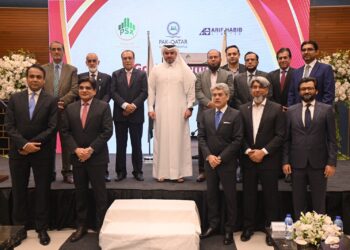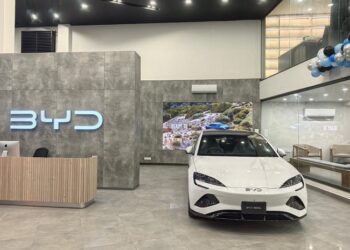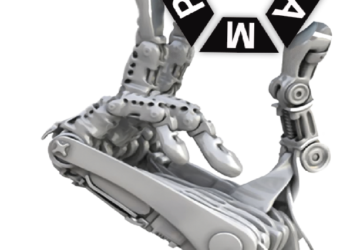Islamabad – In a significant development for Pakistan’s mining and natural resource sector, the World Bank has agreed to provide technical assistance for the infrastructure and socio-economic development of the Reko Diq project and other mining sites in Balochistan. The support will be crucial in ensuring environmentally sustainable and community-inclusive growth in one of Pakistan’s most mineral-rich but underdeveloped regions.
According to official sources, the decision was made during a recent meeting of the Non-Lending Technical Assistance Committee (NLTAC) held at the Ministry of Economic Affairs. The meeting included representatives from key government departments, including the Petroleum Division, as well as international stakeholders such as the World Bank.
Strategic Importance of Balochistan’s Mining Sector
🟢 A Resource-Rich Yet Underdeveloped Province
Balochistan, Pakistan’s largest province by area, holds immense untapped mineral potential. From copper and gold to coal and chromite, the province possesses some of the most promising mining sites in the region. However, the lack of infrastructure, regulatory clarity, and socio-economic development has historically hindered large-scale mining investments and projects.
Among these sites, Reko Diq stands out as one of the largest undeveloped copper and gold projects in the world, with estimated reserves of over 5.9 billion tonnes of ore. The project, located in the Chagai district, has been the focus of renewed government interest and international attention following a settlement agreement in 2022 between the Government of Pakistan and Barrick Gold Corporation.
World Bank’s Technical Assistance: A Key Milestone
During the meeting of the NLTAC, a World Bank representative formally agreed to assist Pakistan in developing an integrated infrastructure and socio-economic model for mining regions in Balochistan. This includes the Reko Diq project and other active or prospective sites throughout the province.
The assistance will not be in the form of direct loans but rather through non-lending technical support, which may include:
- Strategic policy advice
- Capacity building of institutions
- Environmental safeguards training
- Community development frameworks
- Infrastructure development planning
Such support is designed to help Pakistan streamline its mining governance model, attract responsible investment, and ensure that mining-led growth is sustainable and inclusive.
Highlights from the Meeting at the Ministry of Economic Affairs
The high-level meeting was chaired by the Secretary of the Ministry of Economic Affairs and attended by senior officials from the Petroleum Division, Planning Commission, and other departments involved in economic and resource development.
According to sources quoted by The Express Tribune, the Petroleum Division proposed a collaborative initiative that focuses on not just mineral extraction, but also on building sustainable communities around mining sites through targeted investment in:
- Roads and transport networks
- Water and sanitation systems
- Schools and healthcare units
- Renewable energy infrastructure
The Secretary of the Petroleum Division emphasized the nascent stage of Pakistan’s mining industry, noting that “apart from a few medium-scale projects, most mining in the country is either small-scale or informal.”
He also underscored the importance of incorporating environmental protection and community participation into all mining activities, adding that “Pakistan has established a legal and regulatory framework aligned with international standards,” which would help attract foreign expertise and investment.
Understanding the Reko Diq Project: A National Priority
🔶 Overview
The Reko Diq copper-gold project, managed by Barrick Gold Corporation, is estimated to begin full-scale production by 2028. With an investment exceeding $10 billion, it is poised to become a flagship mining project not only for Balochistan but for all of Pakistan.
🔶 Project Scope
- Development of an open-pit mine
- Construction of processing facilities
- Infrastructure for logistics and transport
- Power generation plants
- Water supply systems and tailings management
Once operational, Reko Diq is expected to produce approximately 200,000 tonnes of copper and 250,000 ounces of gold per year, bringing significant foreign exchange earnings and creating thousands of direct and indirect jobs.
The Need for Integrated Development
Mining, by its nature, can bring both opportunities and challenges. While it provides revenue, jobs, and foreign investment, it can also lead to social displacement, environmental degradation, and conflict if not managed responsibly.
Hence, Pakistan’s new approach, with the support of the World Bank, aims to create a holistic development model around mining regions by:
- Implementing Social Impact Assessments (SIAs)
- Ensuring community ownership and inclusion
- Enforcing strict environmental regulations
- Promoting gender inclusion and local employment
This development strategy is essential to win public trust, ensure political stability, and build long-term investor confidence in the region.
Environmental and Regulatory Reforms
Pakistan has in recent years updated its mining policies to reflect best practices in environmental management and corporate responsibility. Some of the notable reforms include:
- Environmental Impact Assessment (EIA) requirements for all major projects
- Establishment of provincial mining regulatory bodies
- Improved transparency in licensing and exploration agreements
- Alignment with OECD guidelines for responsible mining
These measures are crucial for ensuring that mining projects like Reko Diq do not harm the environment or local communities while delivering economic benefits.
Global Best Practices and Pakistan’s Aspirations
With the World Bank’s involvement, Pakistan aims to replicate global best practices from successful mining economies such as:
- Chile, which uses a royalty fund to finance social programs
- Australia, where mining taxes fund education and healthcare
- Botswana, which reinvested diamond revenues into national infrastructure
Pakistan now seeks to apply a similar model by using mining revenues from Balochistan to:
- Invest in local human development
- Build long-lasting infrastructure
- Fund vocational and technical education for youth
- Foster inclusive and balanced regional growth
Challenges Ahead and the Way Forward
While the World Bank’s technical assistance is a positive step forward, challenges remain. These include:
- Political instability and bureaucratic delays
- Local resistance due to past experiences with resource extraction
- Lack of skilled manpower in the mining sector
- Security concerns in some parts of Balochistan
Overcoming these hurdles will require coordinated efforts between the federal and provincial governments, international partners, private investors, and local communities.
Conclusion: A Turning Point for Balochistan and Pakistan’s Mining Industry
The World Bank’s agreement to provide technical assistance for Balochistan’s mining sector marks a transformational opportunity for Pakistan. If implemented properly, this initiative could turn mineral-rich but underdeveloped areas like Reko Diq into engines of inclusive and sustainable economic growth.
By integrating infrastructure development with community well-being and environmental protection, Pakistan is signaling to the world that it is ready to manage its natural resources responsibly and transparently.
As global interest in critical minerals grows, Balochistan stands at the threshold of a mining revolution—one that could uplift its people, enhance national revenues, and secure Pakistan’s place in the world’s emerging green economy.

























